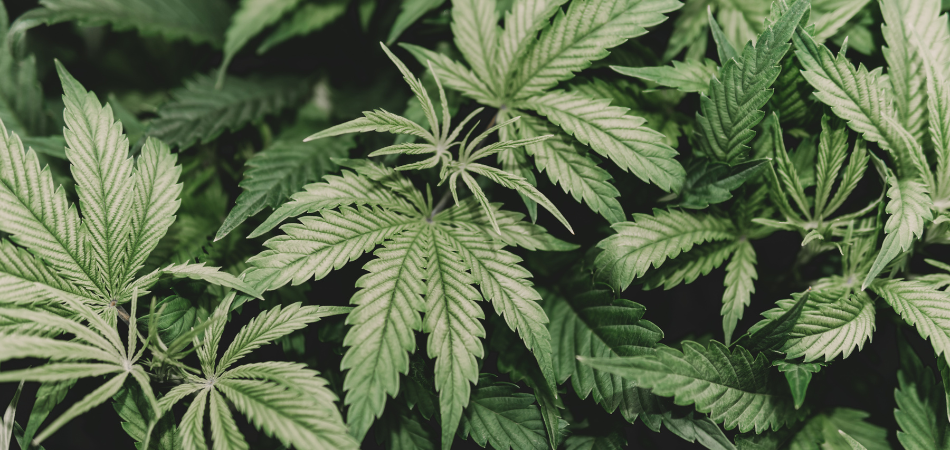
What is cannabis?
Cannabis is a plant that is used for medicinal, recreational, and industrial purposes. It is also known as marijuana, weed, pot, or ganja. The plant contains chemical compounds called cannabinoids, which have various effects on the body when consumed.
The most well-known cannabinoid is delta-9-tetrahydrocannabinol (THC), which is responsible for the psychoactive effects of cannabis. Another important cannabinoid is cannabidiol (CBD), which does not produce a high but has potential therapeutic benefits.
People can consume cannabis in various forms, such as smoking, vaporizing, eating, and applying topically. It is often utilized for its relaxing and euphoric effects, as well as for pain relief, appetite stimulation, and assistance with sleep. However, it is important to note that the use of cannabis is illegal in many countries and can have potential health risks, especially when used in excess or by individuals with certain medical conditions.
What are the different types of cannabis?
There are three main types of cannabis: Cannabis sativa, Cannabis indica, and Cannabis ruderalis. These types differ in their physical characteristics, chemical composition, and effects on the body.
Cannabis sativa plants are tall and thin with narrow leaves. They are known for their energizing and uplifting effects, making them more suitable for daytime use. Sativa strains are often associated with increased creativity, focus, and sociability.
Cannabis indica plants, on the other hand, are shorter and bushier with broader leaves. They are known for their relaxing and sedating effects, making them more suitable for evening or nighttime use. Indica strains are often associated with pain relief, muscle relaxation, and sleep aid.
Cannabis ruderalis is a lesser-known type of cannabis that is native to certain regions of Russia. It is characterized by its small size and autoflowering properties, meaning it does not require a specific light cycle to flower. Ruderalis strains are often used for breeding purposes to create hybrid strains with specific traits.
How does cannabis affect the body?
When individuals consume cannabis, its cannabinoids interact with the body’s endocannabinoid system, which plays a role in regulating various physiological processes. The cannabinoids bind to receptors in the brain and throughout the body, affecting neurotransmitter release and modulating the activity of different systems.
The main psychoactive cannabinoid in cannabis, THC, binds to cannabinoid receptors in the brain, particularly in the regions responsible for memory, coordination, pleasure, and time perception. This interaction produces the characteristic euphoria, relaxation, and altered sensory perception associated with cannabis use.
Other cannabinoids, such as CBD, have different effects on the body. CBD does not produce a high but has been found to have potential therapeutic benefits, such as reducing inflammation, relieving pain, and alleviating anxiety and depression.
It is important to note that the effects of cannabis can vary depending on the individual, the type and potency of the cannabis consumed, the method of consumption, and other factors such as tolerance and previous cannabis use.
What are the potential health benefits of cannabis?
Cannabis has been used for centuries for its potential medicinal properties. Research suggests that cannabinoids, such as THC and CBD, may have various therapeutic effects on the body.
Some potential health benefits of cannabis include:
- Pain relief: Cannabis has been found to be effective in reducing pain, especially chronic pain conditions such as neuropathy and arthritis.
- Anti-inflammatory properties: CBD has been shown to have anti-inflammatory effects, which may be beneficial for conditions such as arthritis, multiple sclerosis, and inflammatory bowel disease.
- Anti-anxiety and antidepressant effects: CBD has been found to have anxiolytic and antidepressant properties, which may help alleviate symptoms of anxiety and depression.
- Anti-seizure properties: CBD has been approved by the FDA for the treatment of certain types of epilepsy, such as Dravet syndrome and Lennox-Gastaut syndrome.
- Appetite stimulation: THC has been used to stimulate appetite in individuals with conditions such as cancer and HIV/AIDS.
- Sleep aid: Cannabis has been found to have sedating effects, which may help individuals with insomnia or sleep disorders.
It is important to note that more research is needed to fully understand the potential health benefits and risks of cannabis, and its use should always be discussed with a healthcare professional.
What are the potential risks and side effects of cannabis?
While cannabis has potential health benefits, it is also associated with certain risks and side effects.
Some potential risks and side effects of cannabis use include:
- Impaired cognitive function: Cannabis use can impair memory, attention, and concentration, especially when used in high doses or over a long period of time.
- Psychiatric effects: Cannabis use has been linked to an increased risk of developing psychiatric disorders, such as schizophrenia, especially in individuals with a predisposition to these conditions.
- Respiratory problems: Smoking cannabis can irritate the lungs and respiratory system, leading to coughing, wheezing, and an increased risk of respiratory infections.
- Cardiovascular effects: Cannabis use can temporarily increase heart rate and blood pressure, which may be problematic for individuals with cardiovascular conditions.
- Dependency and addiction: While the risk of developing a cannabis addiction is relatively low compared to other substances, some individuals may develop a dependence on cannabis and experience withdrawal symptoms when trying to quit.
- Impaired driving: Cannabis use can impair motor skills, coordination, and judgment, increasing the risk of accidents and impaired driving.
It is significant to use cannabis responsibly and be aware of the potential risks and side effects. Individuals with certain medical conditions or who are taking medications should consult with a healthcare professional before using cannabis.
Is cannabis legal?
The legal status of cannabis varies from country to country and even within different states or provinces. In some countries, such as Canada and Uruguay, cannabis is legal for recreational and medicinal use. In other countries, it is illegal to possess, cultivate, or sell cannabis.
In the United States, the legal status of cannabis is complex. While cannabis is illegal at the federal level, several states have legalized its recreational and/or medicinal use. However, it is important to note that even in states where cannabis is legal, there may still be restrictions on its use, such as age limits and possession limits.
It is important to familiarize yourself with the laws and regulations regarding cannabis in your jurisdiction before using or possessing it.
State of Mississippi legalization
Understanding Missouri’s Marijuana Laws
Can cannabis be used as a medicine?
Yes, cannabis has been used as a medicine for centuries and is still used today for its potential therapeutic effects.
Healthcare professionals in certain countries and states where cannabis is legal may prescribe it for various medical conditions like chronic pain, epilepsy, multiple sclerosis, and chemotherapy-induced nausea and vomiting.

However, it is important to note that the use of cannabis as a medicine is still a topic of debate and ongoing research. While some studies have shown promising results, further research is necessary to gain a comprehensive understanding of the potential benefits and risks associated with using cannabis as a medicine.
Suppose you are considering using cannabis for medical purposes. In that case, it is important to consult with a healthcare professional who is knowledgeable about cannabis and its potential interactions with other medications or treatments.
Can cannabis be addictive?
While the risk of developing a cannabis addiction is relatively low compared to other substances, some individuals may develop a dependence on cannabis and experience withdrawal symptoms when trying to quit.
People with cannabis addiction, also referred to as cannabis use disorder, compulsively use cannabis despite experiencing negative consequences. Symptoms of cannabis addiction may include cravings, difficulty controlling use, tolerance, and withdrawal symptoms such as irritability, insomnia, and loss of appetite.
It is crucial to use cannabis responsibly and be aware of the potential risks of developing a dependence or addiction. If you or someone you know is worried about cannabis use, it’s advisable to seek assistance from a healthcare professional or addiction specialist.
Can cannabis help with anxiety?
Cannabis has been found to have anxiolytic properties, meaning it may help alleviate symptoms of anxiety. However, the effects of cannabis on anxiety can vary depending on the individual and the type and potency of the cannabis consumed.
While some individuals may find that cannabis helps reduce their anxiety, others may experience increased anxiety or paranoia, especially when consuming high doses or strains with high levels of THC.
Use cannabis for anxiety under the guidance of a healthcare professional, who can help determine the appropriate dosage and strain for your specific needs. It is also important to be aware of the potential risks and side effects of cannabis use, especially for individuals with a history of anxiety or other mental health conditions.
Can cannabis help with sleep?
Researchers have discovered that cannabis possesses sedating effects, potentially aiding individuals with insomnia or sleep disorders. Specifically, THC has demonstrated sleep-inducing properties.
However, the effects of cannabis on sleep can vary depending on the individual and the type and potency of the cannabis consumed. While some individuals may find that cannabis helps them fall asleep and improves the quality of their sleep, others may experience disrupted sleep or grogginess the next day.
It is safe to say that use cannabis for sleep under the guidance of a healthcare professional, who can help determine the appropriate dosage and strain for your specific needs. Be aware of the potential risks and side effects of cannabis use, especially for individuals with sleep apnea or other sleep-related disorders.
Conclusion
As we conclude our exploration, it’s evident that cannabis holds a complex position within both society and the medical community. Its bifurcated nature as both a source of therapeutic promise and a subject of legal and health concerns calls for a nuanced understanding. While the potential benefits—ranging from pain management to anxiety relief—paint a compelling picture of cannabis as a medicinal ally, the conversation is far from one-sided. The risks, including cognitive impairments and the specter of addiction, remind us of the importance of responsible consumption and the need for further research to illuminate the full spectrum of cannabis’s impact on health and well-being. As the legal landscape continues to evolve, so too does our understanding of this ancient plant,




